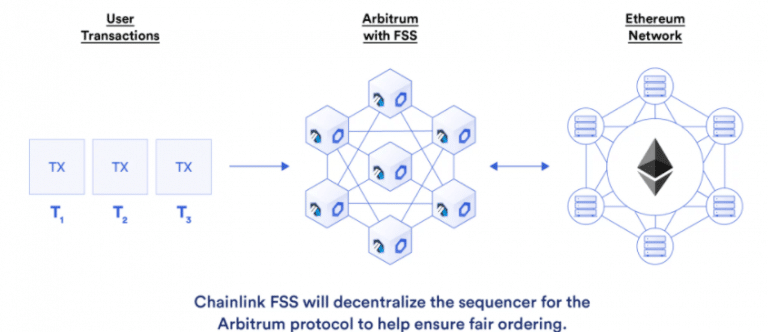Arbitrum declared an outage yesterday afternoon, causing transactions on its network to come to a complete halt for the duration. A sequencer node used to compress transactions is believed to be at fault.
An outage on the Arbitrum network
Arbitrum announced via its Twitter account that it had experienced an outage on the afternoon of Sunday, January 9
We are currently experiencing Sequencer downtime. Thank you for your patience as we work to restore it. All funds in the system are safe, and we will post updates here.
– Arbitrum (@arbitrum) January 9, 2022
The network returned to normal during the night shortly before 10pm.
Offchain Labs, the technical team behind the Arbitrum network, published a post on their Medium blog to explain in detail the reasons for the outage.
It seems that the origin of the problem was the sequencer node, which also caused trouble for the RPC nodes.
In concrete terms, an RPC node can be likened to a server: it reads the data from the blockchain and sends transactions to the various networks.
The sequencer node, on the other hand, is what makes Arbitrum unique, since its role is to compress the various transactions on its network and then send them back to the Ethereum blockchain (ETH).
In the article, we also learn that in these cases, there is a backup sequencer that is supposed to take over. Unfortunately, this could not be deployed, as a software update was in progress at the same time.
Fortunately for users, however, no transactions were lost.
Arbitrum and the Ethereum network
Arbitrum is a so-called sub-layer of the Ethereum blockchain. In technical terms, this is called a layer 2.
Layer 2s can have several uses, but in general they aim to correct some of the flaws of their layer 1.
For example for Bitcoin, one of its layer 2s is the Lightning Network, which aims to speed up the speed of transactions on the blockchain.
In this case, Arbitrum is a layer 2 that also aims to speed up the speed of some transactions deployed on the Ethereum blockchain, but more importantly, it reduces their costs.
On his blog, Vitalik Buterin, the co-founder of Ethereum, explains it in these terms:
” […] The result is a system where scalability is still limited by the bandwidth of the underlying blockchain, but at a very favourable ratio: where an ERC20 token transfer normally costs about 45,000 gas, an ERC20 token transfer on a rollup takes only 16 bytes of space and costs less than 300 gas. “
However, one of the problems with this technique is that sequencers can manipulate transactions within blocks at will and flip them to their advantage. This problem is known as Miner Extractable Value (MEV).
To address this security issue, Arbitrum is expected to become a decentralised protocol through a partnership with Chainlink Labs.

Decentralised Arbitrum protocol with FFS solution (Source: Chainlink)
The Offchain Labs team concludes by explaining that security remains their top priority and as such, it is essential that Arbitrum becomes fully decentralised as soon as possible
